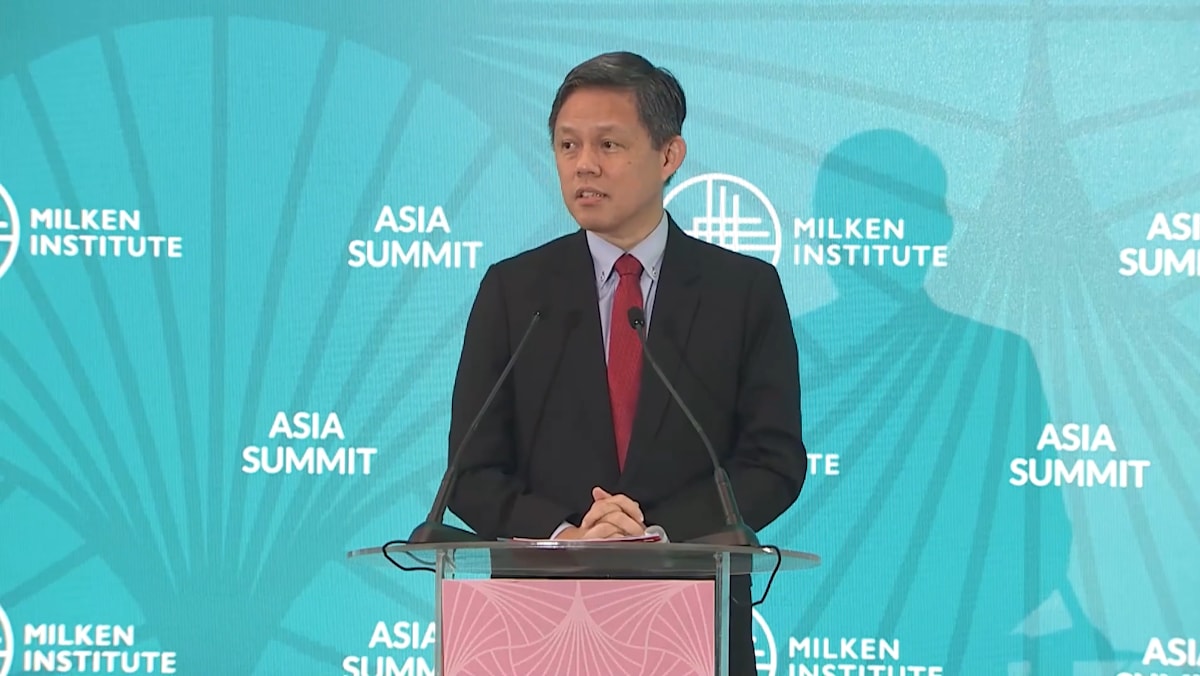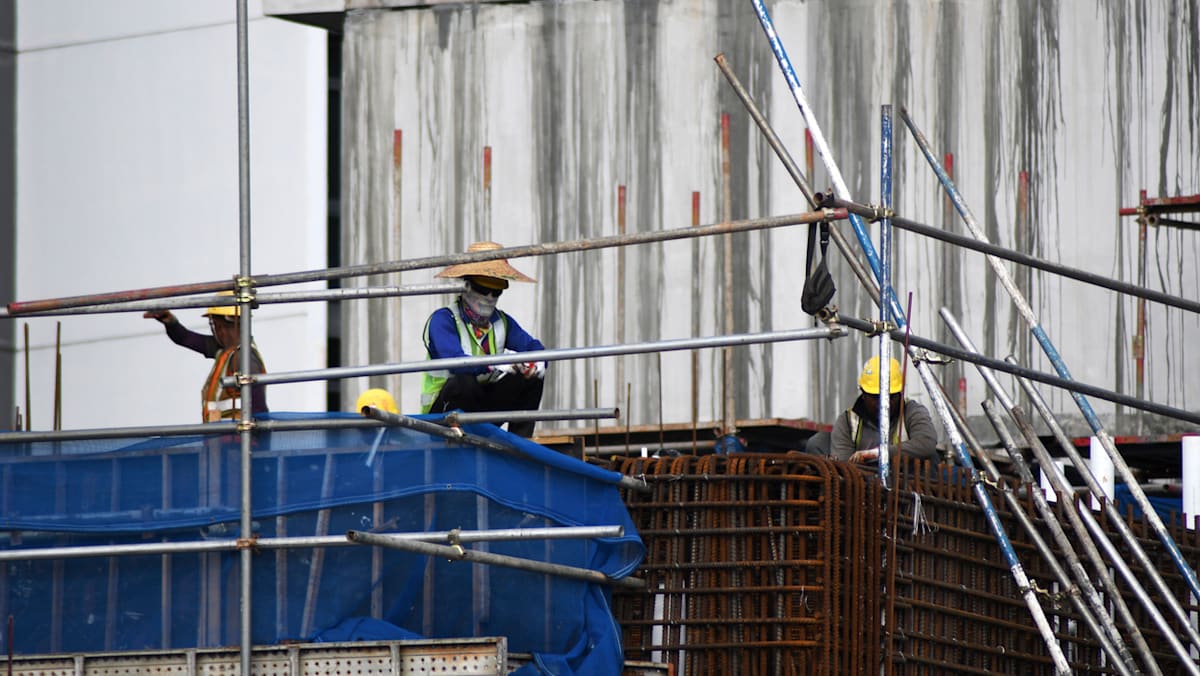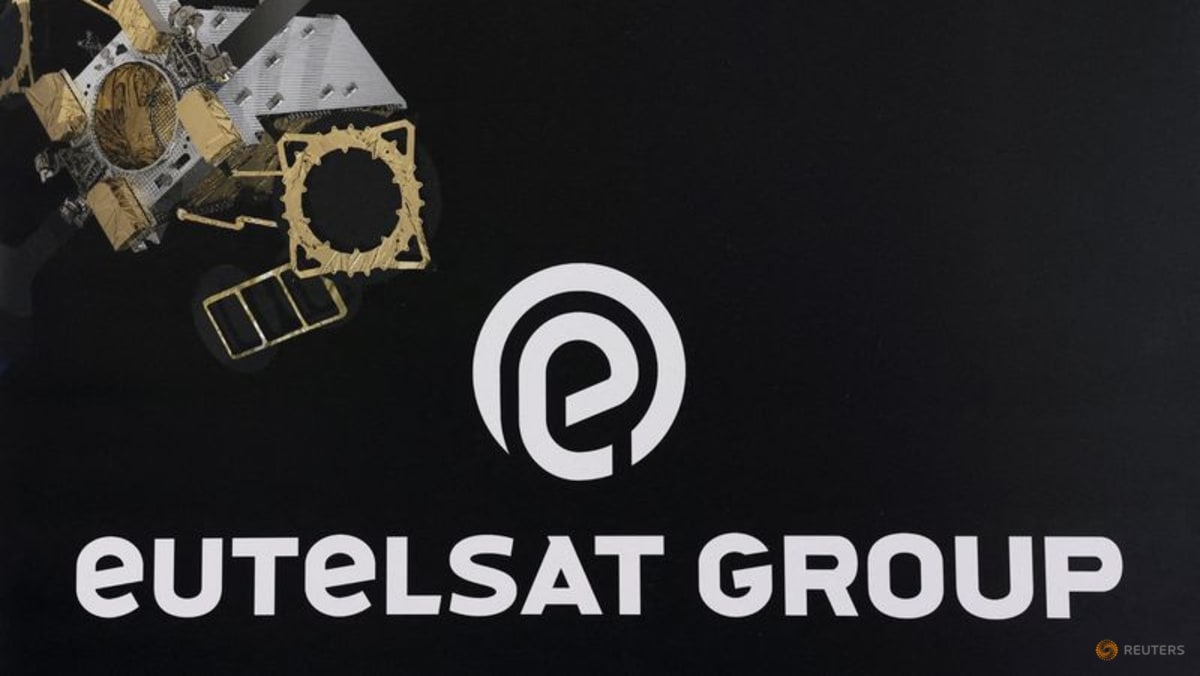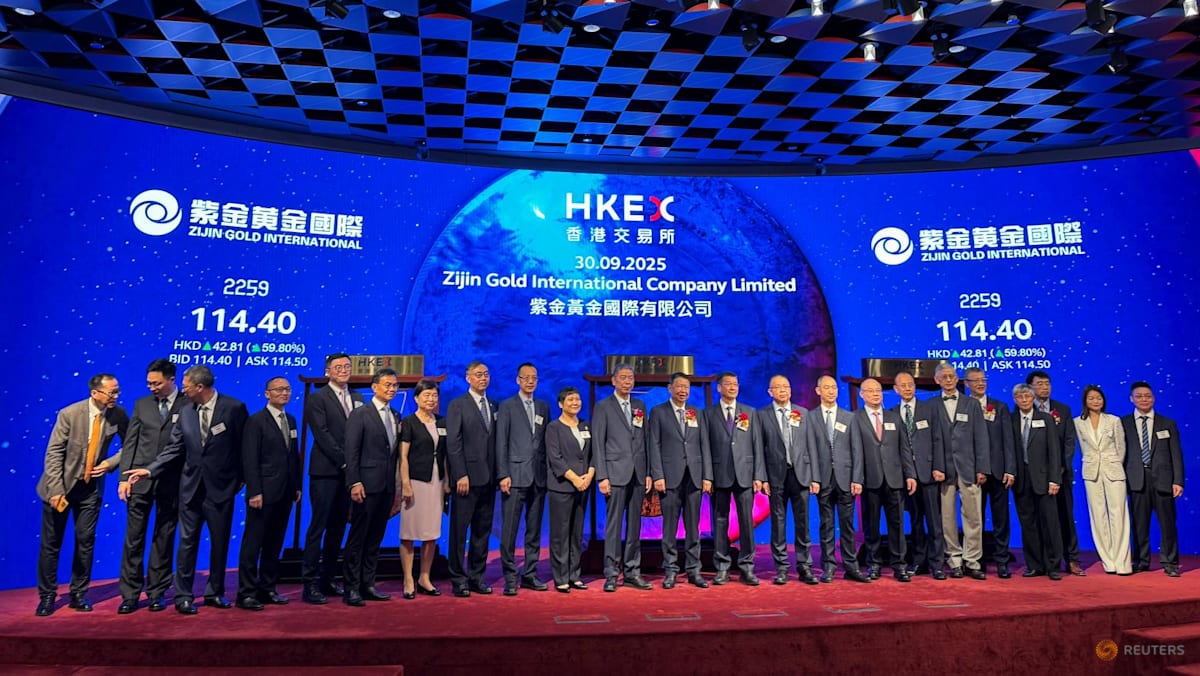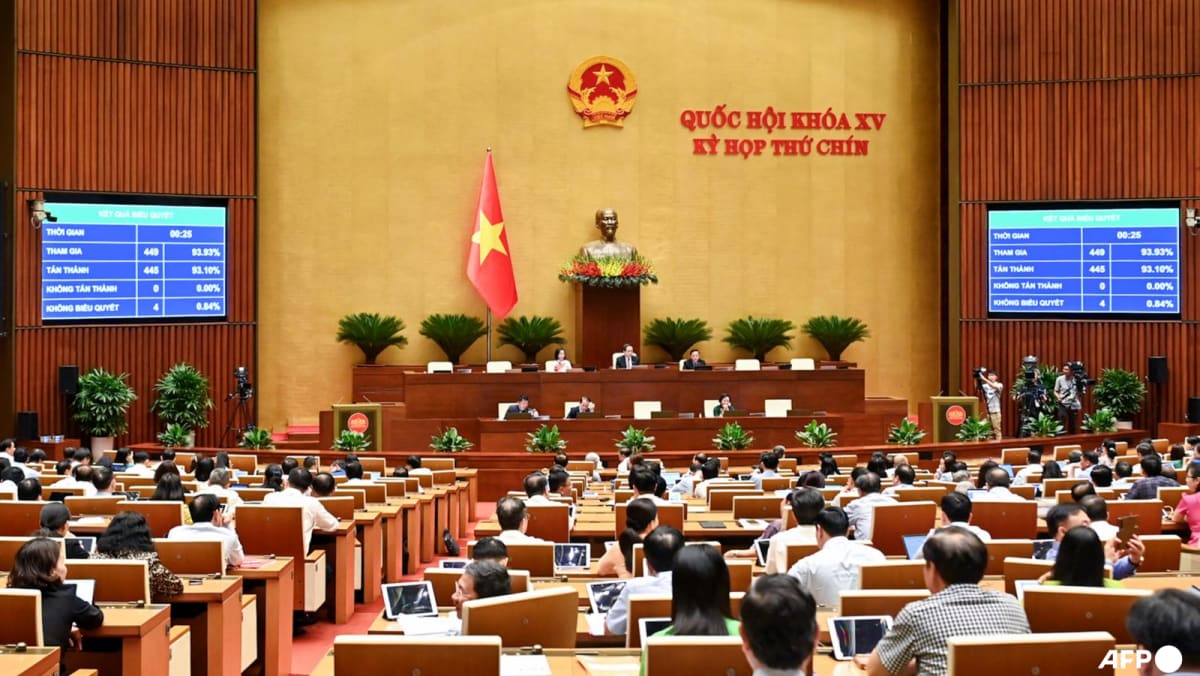SINGAPORE: Logistics firms in Singapore are turning to solutions driven by artificial intelligence such as chatbots and autonomous robots to boost efficiency amid soaring e-commerce volumes.
Parcel delivery giant FedEx, for instance, has rolled out the Quikbot, an autonomous final-mile delivery platform that helps couriers with the last leg of the process.
Their commercial partnership began in May this year, following a 6-month-long pilot at two locations - South Beach Tower and Mapletree Business City.
Quikbot has helped its couriers save more than an hour of work per day, during its trial at South Beach Tower. It has allowed them to focus on other aspects of their job such as customer interaction, said the company.
“It takes away the couriers' last mile challenges … such as waiting time for the lift … and crossing through the gantries, which are activities that the Quikbot robot can automate on its own,” said Mr Eric Tan, managing director of FedEx Express Singapore.
The Quikbot, which can carry loads up to 80kg, begins its rounds at its assigned building. These buildings are digitally mapped out on a cloud-based system so that these robots can be programmed to take elevators on their own.
“We need to first work with real estate owners, help them digitise the building … (sync) doors, turnstiles and elevators,” said Mr Alan Ng, founder and CEO of QuikBot Technologies.
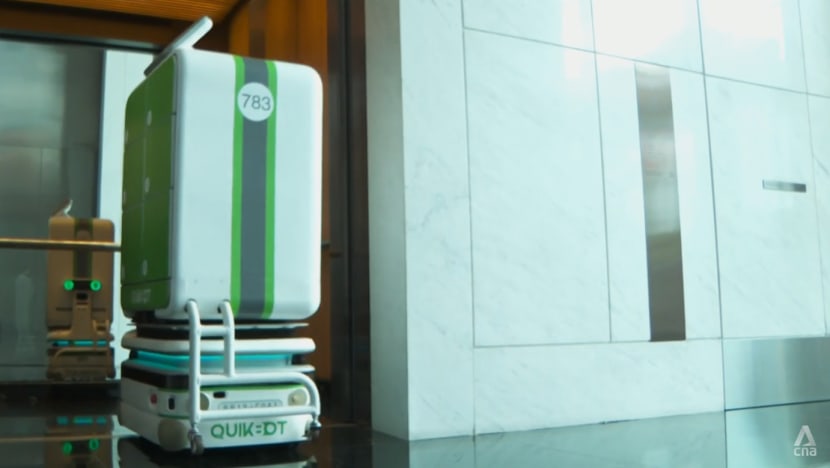 A Quikbot autonomous robot takes an elevator on its own.
A Quikbot autonomous robot takes an elevator on its own.
The robots are then integrated into the delivery systems of FedEx and other logistics clients, and they can start offloading some work to technology.
CHATBOTS
AI-powered chatbots are also being increasingly used by logistic firms.
Courier services firm Ninja Van has introduced one that can offer quicker and more accurate advice on procedures if its delivery drivers face any issues.
The software also helps dispatchers manage more vehicles in the company’s fleet, letting them handle deliveries across more sectors.
Previously, drivers could only specialise in one type of delivery – such as to food and beverages clients or to retail customers – as standard operating procedures differ across sectors.
With the support of the chatbot, they will be able to handle deliveries for different industries, said Mr Lai Chang Wen, group CEO of Ninja Van.
“(For example, at) Orchard Paragon, there’re optical shops and cafes. We used to send two different drivers – one specialised in the exchange process at optical shops (and) the other specialising in the handover process of coffee beans. Now we can send one driver who is better able to handle both types of complex jobs,” he said.
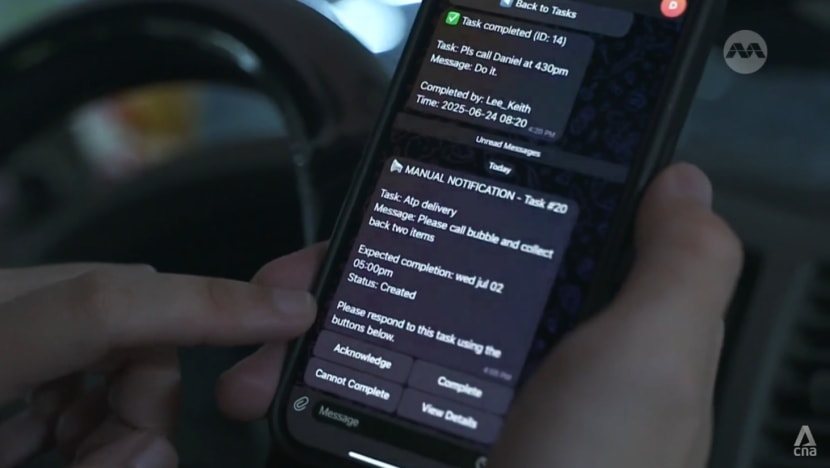 Ninja Van has introduced a chatbot that can offer quicker and more accurate advice on procedures if its delivery drivers face any issues.
Ninja Van has introduced a chatbot that can offer quicker and more accurate advice on procedures if its delivery drivers face any issues.
“Drivers just text on Telegram … (the chatbot) looks through our entire database … and everything is orchestrated in a way where we then provide a very clear, succinct answer to what he must do.”
Mr Lai added that as the chatbot is tailor-made to each customer, clients can customise their delivery instructions, offering more flexibility than a one-size-fits-all approach.
TECH HELPS COURIERS MANAGE VOLUME
Experts said such efficiency gains will be crucial to manage the growing volume of orders faced by logistics and e-commerce firms.
Data published by the Department of Statistics in August last year showed that the total revenue generated from e-commerce across all service sectors was S$401.1 billion (US$314.2 billion) in 2022, up from S$365.3 billion in 2021.
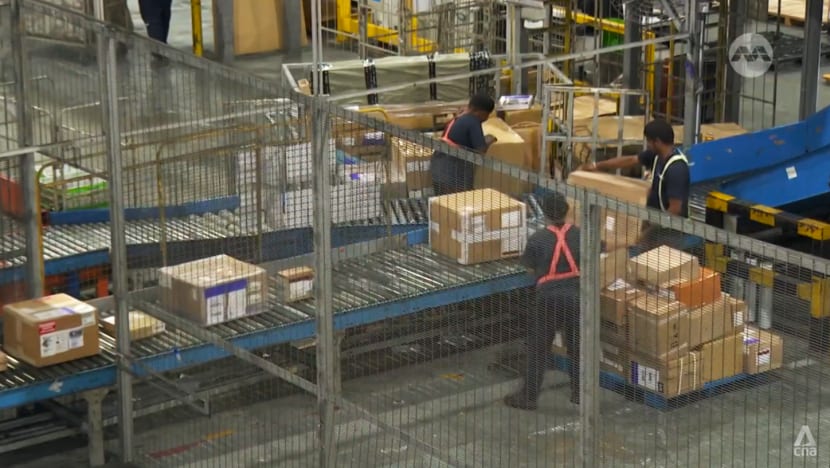 Cargo is sorted at a FedEx facility in Singapore. Logistics and e-commerce firms are faced with a growing volume of orders.
Cargo is sorted at a FedEx facility in Singapore. Logistics and e-commerce firms are faced with a growing volume of orders.
Associate Professor Goh Puay Guan from the National University of Singapore Business School’s analytics and operations department noted that such companies will continue to innovate to improve their efficiency.
He added that being able to scale up and handle higher volumes is a critical part of their business model.
“That will include the use of different technologies, whether it's AI or automation, and a lot of it will involve tweaking the processes … and learning from what they have implemented, improving their work processes and workflow so that it becomes … better in terms of the deployment,” he said.
Assoc Prof Goh added that automation will play a key role in the logistics sector's growth, including aspects such as route planning and optimisation to improve delivery timing.
He also noted that hybrid delivery models would become more prevalent over the next five to 10 years, with humans working alongside robots.






